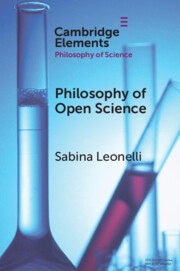Philosophy of Open Science
The Open Science [OS] movement aims to foster the wide dissemination, scrutiny and re-use of research components for the good of science and society. This Element examines the role played by OS principles and practices within contemporary research and how this relates to the epistemology of science. After reviewing some of the concerns that have prompted calls for more openness, it highlights how the interpretation of openness as the sharing of resources, so often encountered in OS initiatives and policies, may have the unwanted effect of constraining epistemic diversity and worsening epistemic injustice, resulting in unreliable and unethical scientific knowledge. By contrast, this Element proposes to frame openness as the effort to establish judicious connections among systems of practice, predicated on a process-oriented view of research as a tool for effective and responsible agency. This title is also available as Open Access on Cambridge Core.
Reviews & endorsements
'… an insightful overview of the intricate relationship between the ideals of the open science movement and the realities of scientific practice. … For the individual researcher, this book can serve as a valuable reminder and resource for articulating challenges to prevailing assumptions within their practice and engagement with open science projects, providing a framework to assess the sociocultural implications entrenched therein. … a welcome addition to the field.' Carl J. Sciglitano, Metascience
Product details
August 2023Paperback
9781009416399
75 pages
230 × 150 × 5 mm
0.143kg
Available
Table of Contents
- 1. Introduction
- 2. Rethinking communication: research in a changing world
- 3. Rethinking practice: challenges of open science implementation
- 4. Rethinking values: diversity and justice across systems of practice
- 5. Rethinking the philosophy of OS
- 6. Conclusion
- References.



